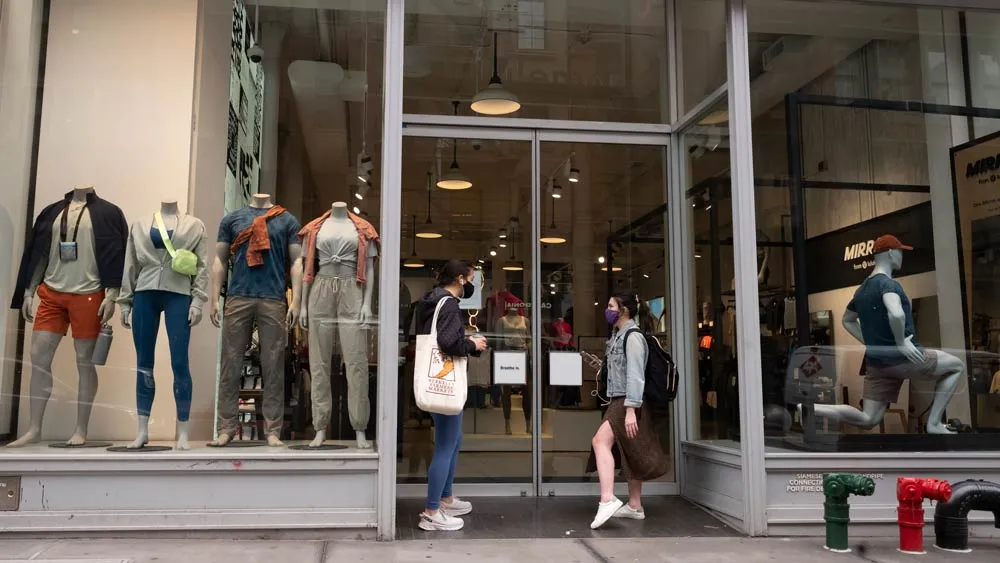August 26, 2014
Wisconsin, Indiana Set to Defend Gay Marriage Bans
Jason St. Amand READ TIME: 4 MIN.
The legal skirmish over same-sex marriage shifted Tuesday to a federal appeals court in Chicago as attorneys for Wisconsin and Indiana sought to reinstate bans on gay weddings ruled unconstitutional two months earlier.
The outcome of the case also could directly affect hundreds of couples who were married in June after federal judges overturned the bans but before their rulings were put on hold pending appeal.
Gay marriage is currently legal in 19 states as well as the District of Columbia, and momentum is building for more states to recognize it. Advocates have won more than 20 court victories around the country since the U.S. Supreme Court struck down a portion of the Defense of Marriage Act that prohibited the federal government from recognizing same-sex marriage in 2013.
A voter-approved constitutional amendment bans gay marriage in Wisconsin. State law prohibits it in Indiana. Neither state recognizes same-sex marriages performed elsewhere.
Lawyers representing Wisconsin Attorney General J.B. Van Hollen and Indiana Attorney General Greg Zoeller were due to make oral arguments Tuesday morning to a three-judge panel of the 7th U.S. Circuit Court of Appeals. Attorneys for the American Civil Liberties Union and Lambda Legal, a national organization working for gay rights, also were scheduled to appear. Each side was allotted 20 minutes for arguments.
It's unclear when the court might issue a ruling.
The ACLU filed a lawsuit challenging Wisconsin's ban in February. Lambda Legal filed its lawsuit challenging Indiana's ban in March. The lawsuits raised similar arguments on behalf of a number of gay and lesbian plaintiffs seeking to get married, contending that the bans violate the U.S. Constitution's equal protection guarantee.
U.S. District Judge Barbara Crabb struck down Wisconsin's ban down on June 6. More than 500 gay couples got married before Crabb put her ruling on hold a week later pending Van Hollen's appeal.
In Indiana, U.S. District Judge Richard Young threw out the state's prohibition on June 25. Hundreds of couples in that state got married before the 7th Circuit stayed his ruling two days later. It's unclear exactly how many couples tied the knot; marriage data is spread across the state's 92 counties and many county clerks didn't distinguish between whether the couple was gay or straight.
The 7th Circuit consolidated the states' cases in July.
Van Hollen and Zoeller, both Republicans, have raised similar arguments in court filings with the appeals court that states have the authority to set marriage standards and the federal government should defer to them. Van Hollen noted Wisconsin has traditionally defined marriage as a union between a man and woman. Zoeller has maintained that the state has a legitimate interest in promoting traditional marriage as a means of encouraging environments where biological parents raise their children.
"There is no due process or equal protection right to have one's out-of-state same-sex marriage recognized at home, and no due process or equal protection right to same-sex marriage outright," Zoeller's attorneys argued in a filing.
The ACLU and Lambda Legal, for their part, have essentially reiterated their equal protection arguments in filings with the appellate court, arguing that the bans deny gay couples state and federal legal protections and benefits that married straight couples enjoy.
"The freedom to marry is a core aspect of personal liberty for all Americans," the ACLU said in its briefs.
On the eve of the hearing, more than 50 gay marriage supporters gathered at a plaza across from Chicago's federal court building, some carrying placards reading, "Equal Rights from Coast to Coast" and "Love is Love."
Ruth Morrison, a retired Indianapolis Fire Department battalion chief, said that Indiana won't recognize the woman Morrison married in another state as her wife, so she won't be able to pass on pension and other benefits to her partner if she dies.
"Now Indiana tells us our promises are only good if our spouses are of the opposite sex," said Morrison, wearing a fire department uniform.
Morrison and other speakers said they intended to sit in on Tuesday's court session.
This story is part of our special report: "Gay Marriage". Want to read more? Here's the full list.


